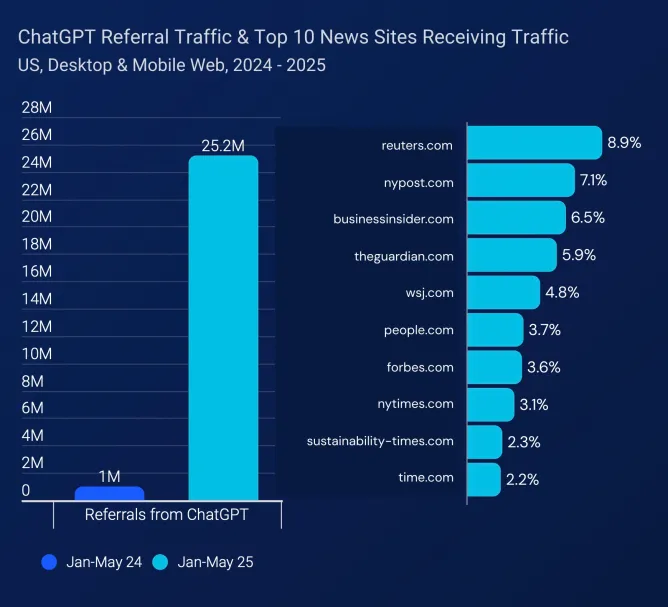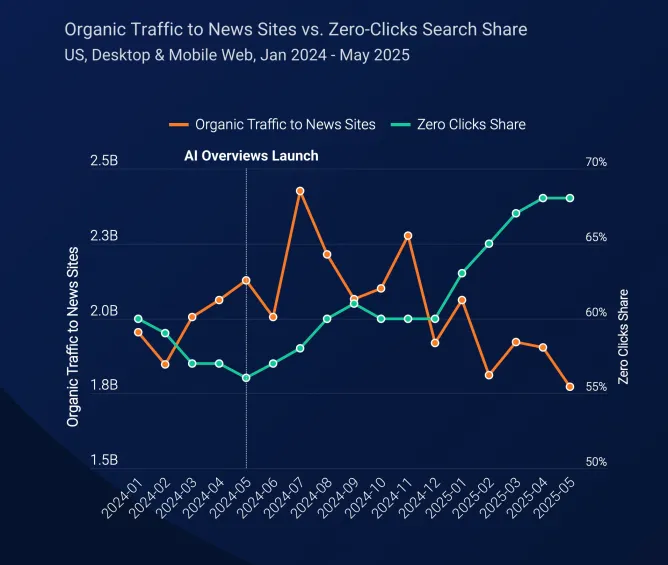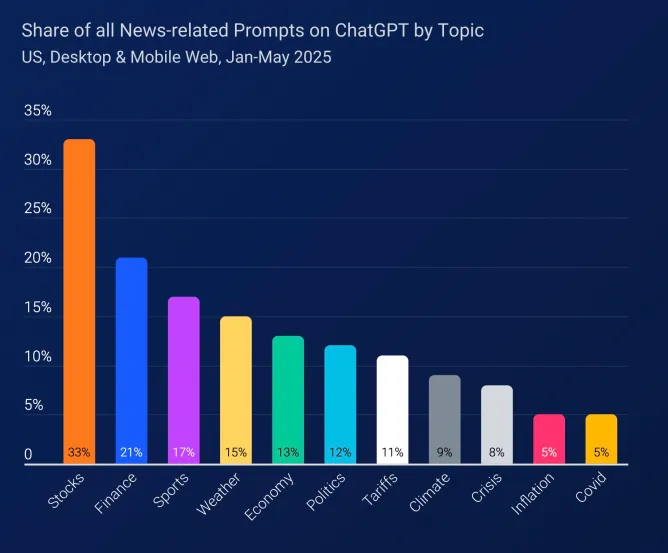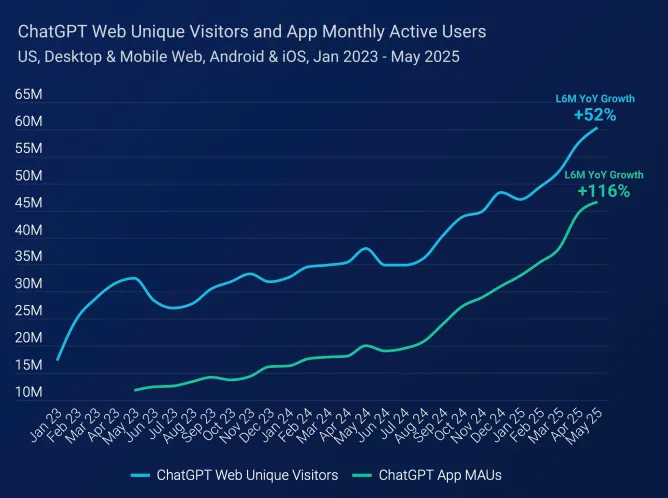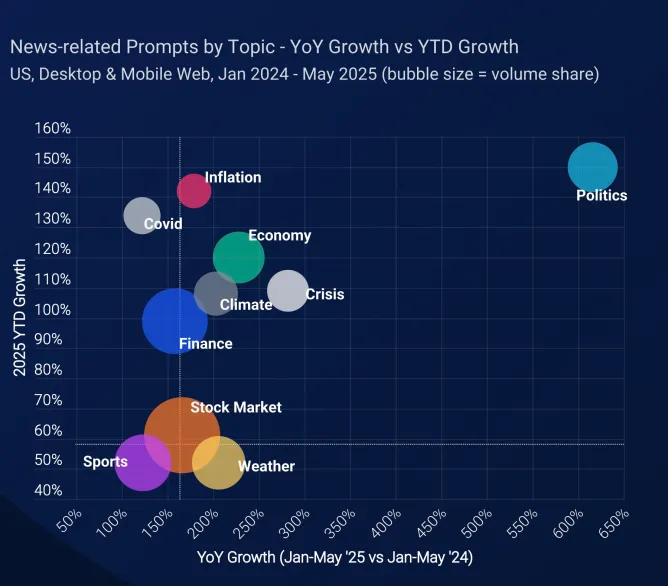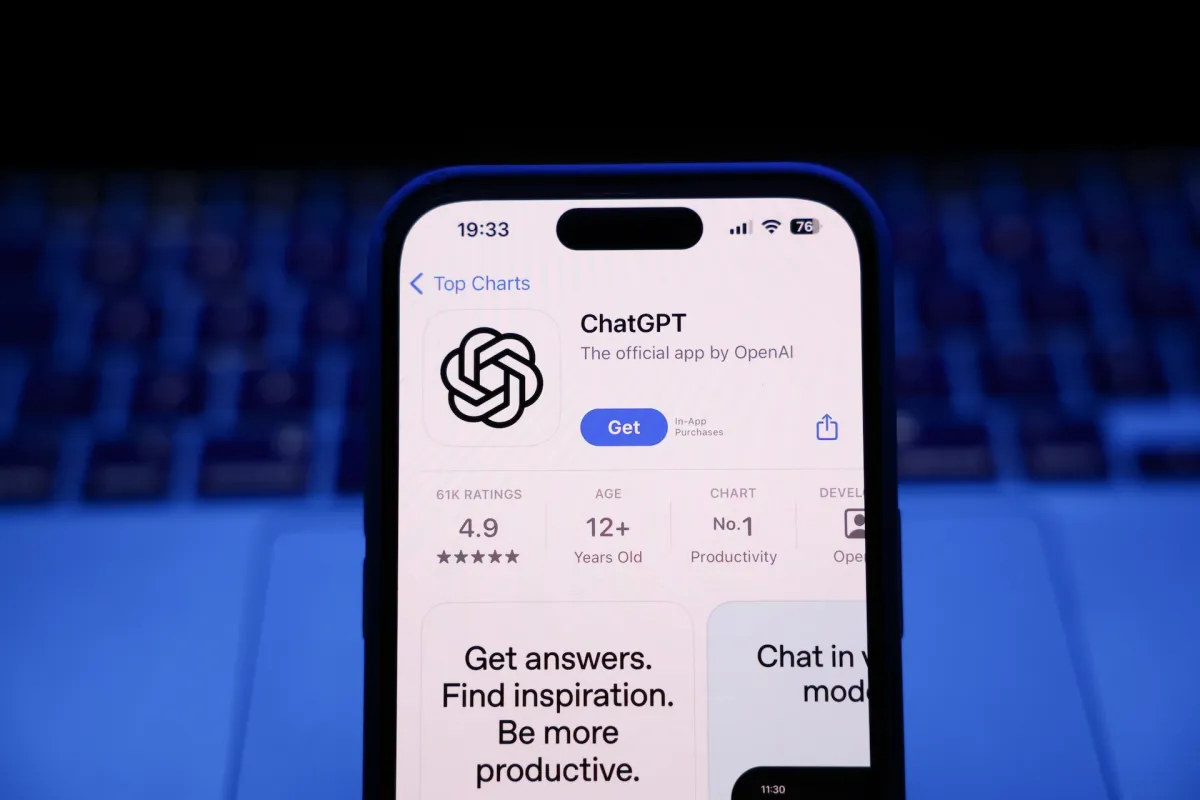
A new report by digital intelligence firm Similarweb shows what many in the media industry have suspected: traffic to news websites is slipping — fast — and AI might be the reason.
The study reveals that since the rollout of Google’s AI Overviews in May 2024, “zero-click” news searches — meaning users get their answers without clicking on any links — have jumped from 56% to nearly 69% in just 12 months. That’s a big blow to publishers who’ve long depended on Google search traffic as a primary channel for reach, readership, and revenue.
It gets worse: organic traffic to news sites has dropped from over 2.3 billion visits at its peak in mid-2024 to under 1.7 billion by May 2025.
And while referrals from ChatGPT to news publishers are growing rapidly — up 25x year over year, from under 1 million in early 2024 to more than 25 million in 2025 — it’s not enough to compensate for the losses from traditional search.
Why it matters:
For decades, ranking high in Google was the ultimate game for media brands. SEO teams optimized every word and headline, hoping to catch the attention of the search algorithm and, in turn, drive clicks.
But now, AI-generated summaries are doing the reading for users. People no longer have to visit your site to get your reporting. That’s a big shift — and a painful one.
Some publishers are doing better than others. Reuters saw an 8.9% jump in ChatGPT referrals, while NY Post and Business Insider grew 7.1% and 6.5% respectively. But The New York Times — which is currently suing OpenAI — only grew 3.1% despite still being in the top 10 sites for AI referrals.
What’s trending in AI-powered news prompts?
Topics like stocks, finance, and sports dominate. But Similarweb notes growing interest in deeper issues — politics, economics, weather, and more — suggesting that users are starting to engage with AI not just for headlines, but for context and understanding.
At the same time, ChatGPT itself is seeing explosive growth. In the last six months, app users have more than doubled. Website visitors? Up 52%.
Brands are now starting to wake up. Similarweb has even launched a service for companies to monitor how their names and stories appear across GenAI tools like ChatGPT — and how they stack up against the competition.
So what can publishers do?
It’s complicated.
Some are experimenting with monetization alternatives. Google recently introduced Offerwall — a tool that lets publishers try newsletters, micropayments, or gated access instead of relying solely on ads. Others are tightening their paywalls. But for many, it’s still not enough.
And for some, it’s already too late. Staff cuts, shutdowns, and pivots are now the new normal.
OpenAI CEO Sam Altman said it bluntly in a recent NYT Hard Fork interview: “Some jobs will go away … whole categories may disappear. And while that may benefit society in the long term, there’s real pain in the short term.”
News publishers aren’t just watching an industry evolve — they’re watching their business model unravel.
The question now is: can they adapt fast enough?
Because AI isn’t waiting.

